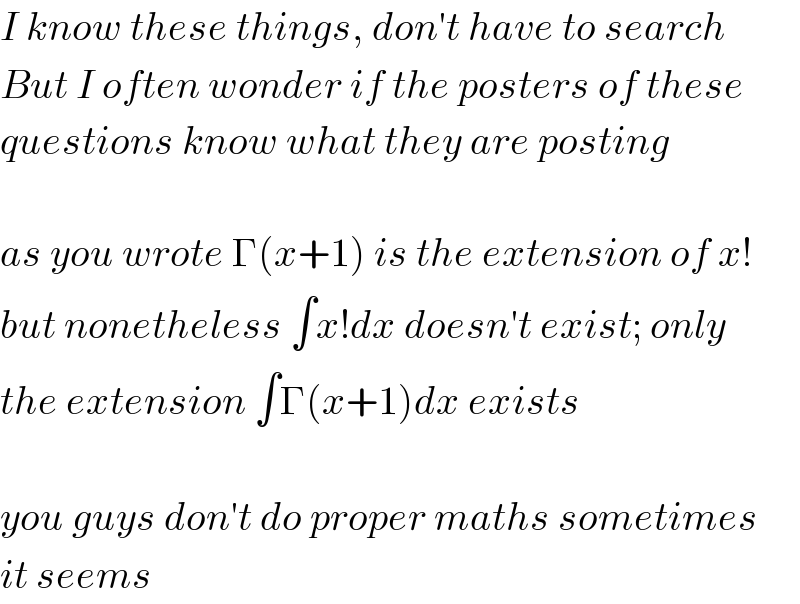
Question and Answers Forum
Question Number 106745 by qwertyu last updated on 06/Aug/20

Commented by Her_Majesty last updated on 06/Aug/20

Commented by qwertyu last updated on 06/Aug/20

Commented by Her_Majesty last updated on 06/Aug/20

Commented by floor(10²Eta[1]) last updated on 06/Aug/20

Commented by floor(10²Eta[1]) last updated on 06/Aug/20

Commented by Her_Majesty last updated on 06/Aug/20

Commented by Sarah85 last updated on 07/Aug/20

Commented by 1549442205PVT last updated on 07/Aug/20

Answered by mathmax by abdo last updated on 06/Aug/20

Answered by Sarah85 last updated on 07/Aug/20

